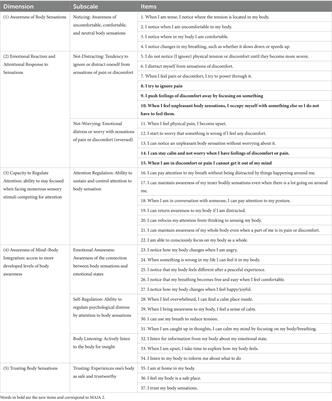Interoceptive Awareness in a Clinical Setting: The need to bring interoceptive perspectives into clinical evaluation
Interoceptive awareness (IA) is a crucial to understanding mental health.

The Multidimensional Assessment of Interoceptive Awareness (MAIA) scale, available in approximately 30 languages, has gained global recognition for its research applicability. This review highlights the critical importance of integrating IA evaluation in clinical settings, advocating for the MAIA scale's potential as a screening tool. Through an examination of academic databases, including Scopus, PubMed, Google Scholar, and J-STOR, our analysis spans seven mental health domains: eating disorders (ED), depression, stress, anxiety, autism spectrum disorder (ASD), chronic pain, and suicide ideation (SI). Thirty-eight studies showed links between several dimensions of IA with different disorders. That is, ED was related to Body Trust and Self-Regulation; anxiety to Body Listening, Emotional Awareness, and Self-Regulation; depression to Noticing and Emotional Awareness; ASD to Trusting, Emotional Awareness, and Noticing; chronic pain to Not Worrying and Self-Regulation; and SI with Trusting.
These insights hold profound implications for both clinical practice and mental health research.Integrating IA assessments into standard clinical protocols has the potential to improve our understanding of pathology, enrich patient care, and enhance therapeutic strategies.
Read the full article at the original website
References:
